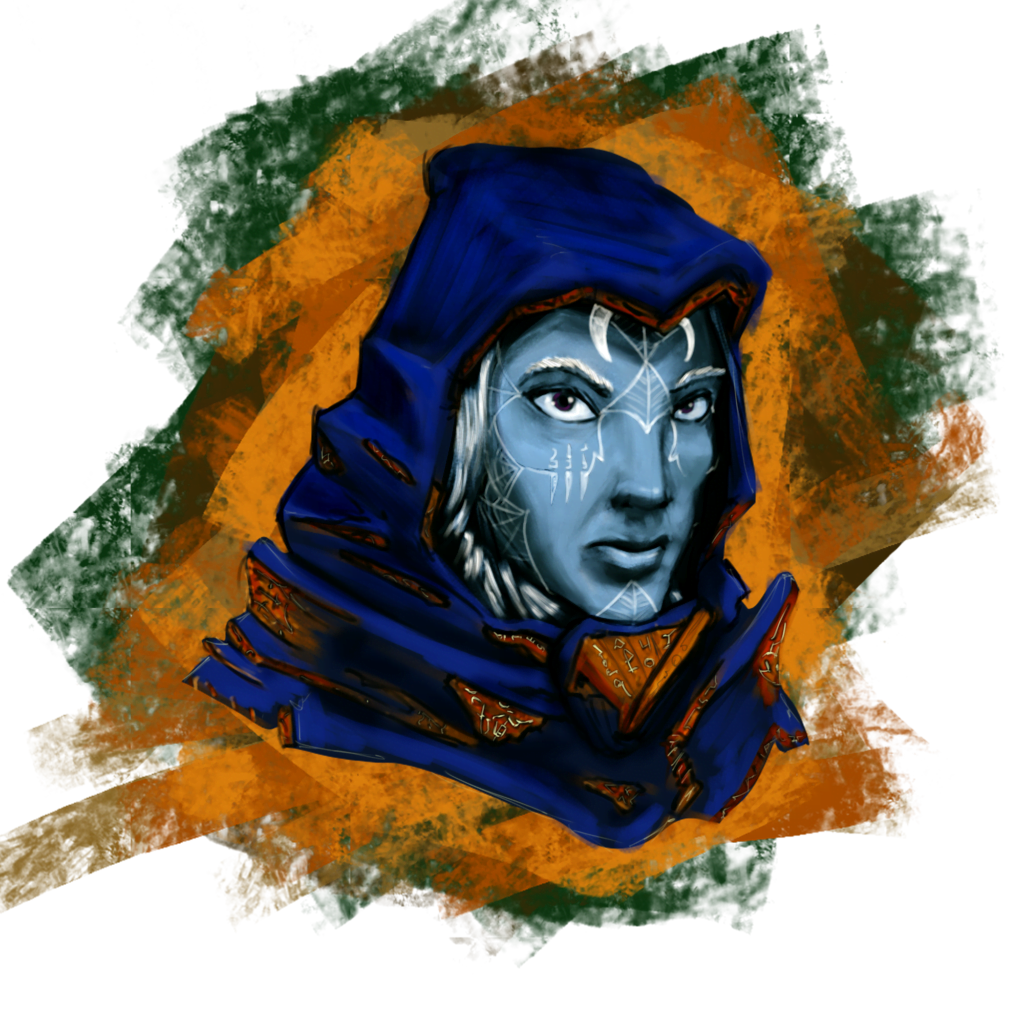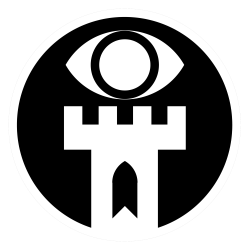[This document is available in pdf format here]
In millennia past, when the dark elves were young, and all races trembled at the name Drow, the first Apostles of Lloth wore the web to show their loyalty to the arachnid queen. These thin white tattoo lines, worn openly on the face, faded in popularity as the power and vanity of the dark elves grew.
Yet as the new generation of Drow agitates for a return to older, crueler ways, the tattoos have seen a resurgence among the young and monstrous. The ink is made from rendered myconid flesh and illithid ichor, and its use causes alternating fits of sickness and rage. Convalescence lasts three days, and when the marked Drow rises on the third day, she is forever changed.
Of course, what folly is tattooed in youth lasts into the wisdom of age. Many Drow who wear the web has since disavowed the fundamentalist, revanchist philosophy that motivated the mark. But, unfortunately, the ink can never be removed, making a warrior’s pride and a philosopher’s shame are indistinguishable.

Meaning and Marking
Bonds of the Drow
The markings across the cheekbones are called Llwenroya or ‘the binding chain’ in Common. The left cheek denotes marital status, the right displays the blood vengeances sworn by the marked elf’s foremothers. It is typically a display of duty.
Bonds of Lloth
The chin markings are called Gwyntrroya; in Common, this means ‘draped chains.’ It is a covenant with Lloth, a list of taboos the wearer has sworn to. It is a display of zealotry. Few outsiders to Lloth’s priesthood can distinguish these web-like markings from others of their kind.
Bonds of the Flesh
The forehead and side markings are called Llwenglyndng, or ‘binding light.’ Intended for use by ancient Drow spider surgeons, these markings typically list magical allergies, organ donor status, and other medical information. Unfortunately, the subtle variations of the web placement are almost indecipherable to even the most ardent scholars.
Taboos of Lloth
When your party first encounters Web-Wearing Drow, all players can speak Elvish roll an Intelligence (History) check. Passing a DC of 12 allows that player to read cheekbone markings and tell a marked Drow’s relationship and vendetta status. Passing a DC of 17 allows an adventurer to read both the cheekbones and chin, adding religious oaths to the information gained. If a hero rolls higher than a 22, they can read the tattoos entirely.
If a hero knows what oaths a Drow has sworn, they may be able to trick them into violating them. Lloth is quick to punish oathbreakers, should they be caught. Likewise, if a hero knows a Drow’s medical information, give that Drow vulnerability to poison damage from that hero, along with any narrative tricks you may allow them.
Taboos (1d8):
- Never harm a spider
- Never write a paragraph with more or less than eight sentences
- Never eat with a male life-form present
- Never eat meat from a non-sentient species
- Never wear clothes woven by a male
- Never dance to a song written in sunlight
- Never lie to a servant
- Never step over a line of chestnuts
